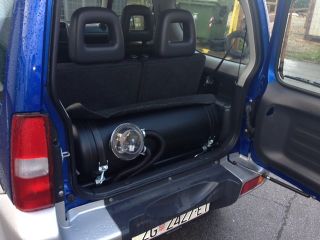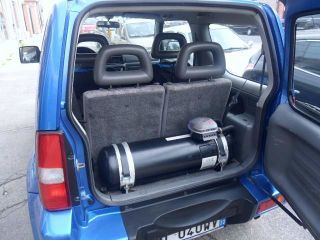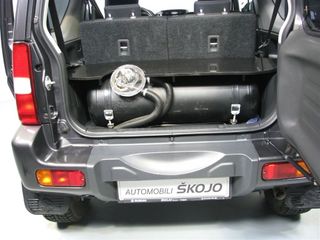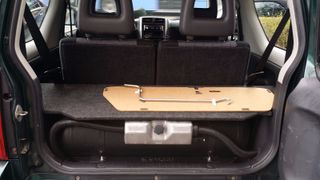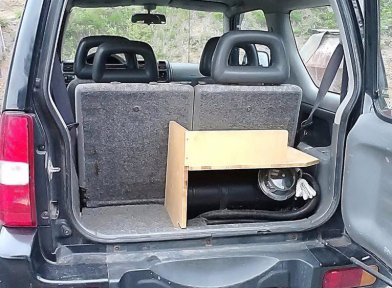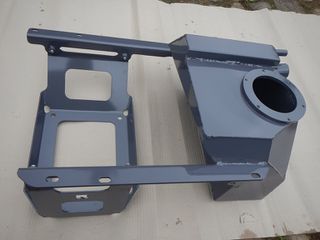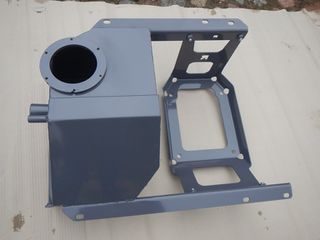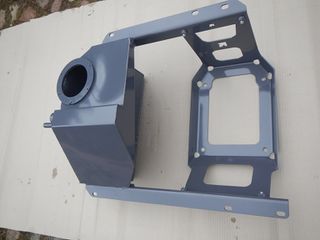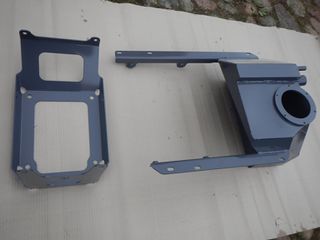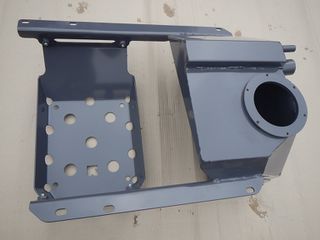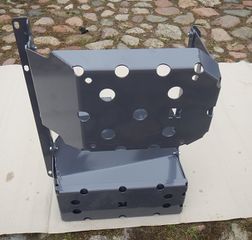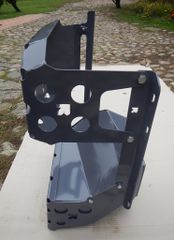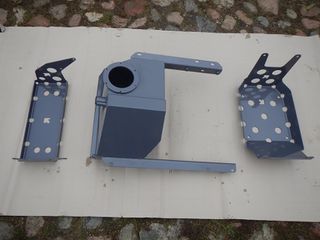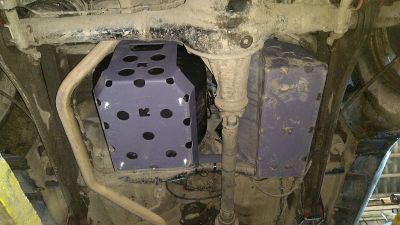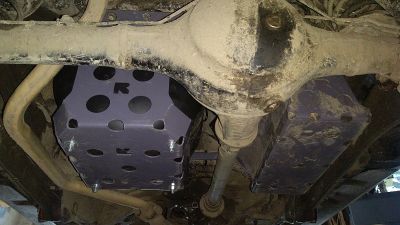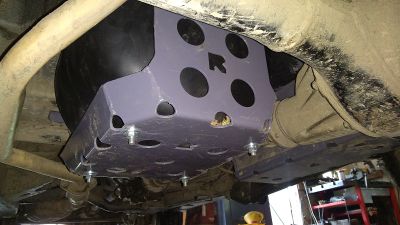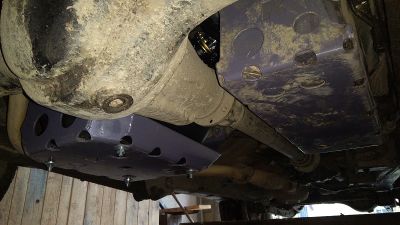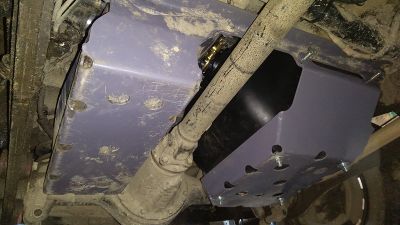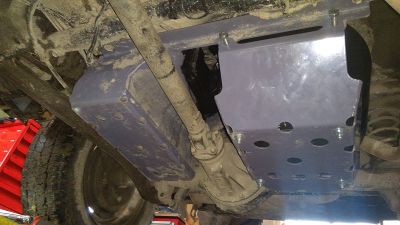Difference between revisions of "LPG fuel supply system"
Jump to navigation
Jump to search
(Added info about two more compatible LPG fuel tanks for Rtech's dual fuel tank solution) |
(Significantly expanded the chapter about additional engine lubrication) |
||
| Line 41: | Line 41: | ||
=== Additional engine lubrication === | === Additional engine lubrication === | ||
| + | |||
| + | |||
| + | ==== Introduction to the issue ==== | ||
* LPG fuel does not heave as good lubricating properties as the petrol fuel. | * LPG fuel does not heave as good lubricating properties as the petrol fuel. | ||
* Some petrol engines have valves and valve seats which are designed precisely for the level of lubrication which petrol fuels provide. | * Some petrol engines have valves and valve seats which are designed precisely for the level of lubrication which petrol fuels provide. | ||
| − | * In other words, they are not so robust as to withstand lower levels of lubrication in the long term. | + | ** In other words, they are not so robust as to withstand lower levels of lubrication in the long term. |
* Engines from far-east Asian manufacturers are the most common ones with this issue. | * Engines from far-east Asian manufacturers are the most common ones with this issue. | ||
* Such engines, when being driven on LPG fuel, will certainly experience accelerated wear of the valves and valve seats in regular intervals. | * Such engines, when being driven on LPG fuel, will certainly experience accelerated wear of the valves and valve seats in regular intervals. | ||
| − | * Replacement of the valves and valve seats can be expected to be required every 50 000 - 100 000 km | + | * Replacement of the valves and valve seats can be expected to be required every 50 000 - 100 000 km. |
| + | ** The replacement interval of course depends on the engine model, driving style, quality of fuel, etc. | ||
* Worn valves and valve seats will increase fuel consumption, engine rattle, emissions, and can cause increased wear of other engine components. | * Worn valves and valve seats will increase fuel consumption, engine rattle, emissions, and can cause increased wear of other engine components. | ||
| − | * When such an engine is the target of conversion to an LPG fuel supply system, is it definitely recommended to | + | * When such an engine is the target of conversion to an LPG fuel supply system, is it definitely recommended to provide an additional engine lubrication when being driven on LPG fuel. |
| − | * | + | * There are two general methods for additional lubrication: |
| + | *# Installing an auxiliary system for dosing small quantities of a special lubricant in the engine; | ||
| + | *# Configuring the LPG ECU to dose in small quantities of petrol fuel together with LPG in the engine (because petrol fuel lubricates the engine properly, compared to LPG); | ||
| + | |||
| + | |||
| + | ===== Suzuki's engines and LPG ===== | ||
| + | |||
| + | |||
| + | * A Suzuki dealer who has extensive experience with LPG conversions has stated that all Suzuki's VVT petrol engines have valves which highly benefit from additional lubrication when LPG fuel is used. | ||
| + | * It is currently not known if the older G13BB and M13A (non-VVT) engines have valves and valves seats which require additional lubrication with LPG fuel or not. | ||
| + | * If someone determines this for certain, please add the information here. | ||
| + | * It is best to check this officially with Suzuki or with some reputable LPG system installer company. | ||
| + | |||
| + | |||
| + | ==== Solution 1 - auxiliary lubrication system ==== | ||
| + | |||
| + | |||
| + | * The additional lubricant compensates for the loss of lubrication due to LPG fuel consumption, and saves the valves and valve seats from accelerated wear. | ||
* The lubricant should have no negative side effects, even when used together with petrol fuel. | * The lubricant should have no negative side effects, even when used together with petrol fuel. | ||
| Line 65: | Line 86: | ||
| − | * | + | {{note|Typical auxiliary product of this type is [https://www.flashlube.com/en/products/valve-saver-fluid.html FlashLube]}} |
| − | * | + | |
| − | * | + | |
| + | * Some people (Internet wisemen, LPG installers, etc.) claim that all or most auxiliary LPG fuel supply lubricants are scams and that they do not actually provide additional lubrication. | ||
| + | ** Their explanation is that the lubricant evaporates at high temperatures and/or pressures in the engine cylinders the moment it enters the cylinder, thus not having a change to lubricate the cylinder in its liquid form. | ||
| + | ** These allegations need additional confirmation. | ||
| + | * Those who have these claims say that the only proper solution for additional engine lubrication is solution #2 below. | ||
| + | |||
| + | |||
| + | ==== Solution 2 - programmed dosing of petrol together with LPG ==== | ||
| + | |||
| + | |||
| + | * Some LPG computers (ECUs) have the capability to control the dosage of petrol fuel into the engine while the engine is being driven on LPG fuel. | ||
| + | * The idea is to use petrol as the additional lubricant when the engine is being driven on LPG, as the petrol is what the engine was actually originally designed to be lubricated by when operating. | ||
| + | ** This way no auxiliary system or liquids for engine lubrication are needed. | ||
| + | * Some LPG ECUs can only be programmed for constant ratio of dosage (for example to always dose in 5% petrol and 95% LPG), while some more advanced LPG ECUs can have multi-stage or dynamic dosing profiles. | ||
| + | ** Example of a multi-stage or dynamic petrol dosing profiles are to dose 5% petrol below 3000 RPM, 8% petrol from 3000-4000 RPM and 15% petrol above 4000 RPM etc, and also to adjust the ratios depending on engine temperature or some other parameters like the readings from the lambda sensor etc. | ||
| + | * An advanced and experienced LPG installer should be masterful of this topic and be able to talk with you about this in a knowledgeable fashion. | ||
| + | * Some LPG installers and Internet wisemen claim that multi-stage dynamic petrol dosing together with LPG is the best form of additional engine lubrication (when configured properly of course). | ||
Revision as of 14:34, 4 May 2018
![]() The content of any article might be expanded / improved in the future - revisit it sometimes.
The content of any article might be expanded / improved in the future - revisit it sometimes.
![]() Seen a mistake? Know something that isn't written? Edit and change this article yourself!
Seen a mistake? Know something that isn't written? Edit and change this article yourself!
![]() Some images in the article (if present) can be enlarged by clicking on them.
Some images in the article (if present) can be enlarged by clicking on them.
Contents
Introduction
- Installing a liquified petroleum gas (LPG) fuel supply system in a vehicle is a popular modification.
- The main (and usually the only) benefit of this modification is cost economy - to save money on running costs over a long term.
- All-terrain vehicles with large petrol engines benefit from this modification the most, because their fuel consumption is among the highest of all non-commercial motor vehicles.
Situation with Jimnys
- Jimnys have (compared to most other all-terrain vehicles) tiny petrol engines, so the difference in running costs is not nearly as drastic, but there still is the potential for cost savings.
- Both the older G13BB and the newer M13A petrol engines in Jimnys are relatively well suited for the installation of an LPG fuel supply system.
- There is absolutely no other reason to install an LPG fuel supply system in a Jimny except to save on running costs in the long term.
- There will be no advantages in performance in any situation, nor in engine longevity.
- The only side-advantage is having additional weight in the rear of the vehicle, which improves traction in 2WD mode (when reversing uphill for example).
Choice of LPG supply systems
- There are numerous manufacturers of LPG supply systems.
- You need to make your own investigation on which one to choose, based on your budget and their quality.
Dynamic injection mixture mapping functionality
- If you have an M13A engine, it is rather recommended that the LPG system has dynamic LPG fuel injection mapping functionality and that it is properly programmed.
- This functionality means that the LPG controller computer has to be connected to vehicle's main vehicle computer.
- Dynamic LPG fuel injection mapping functionality is very useful when installing an LPG fuel supply system in any modern car made since the early 2000s which has OBD2 capable vehicle computer.
- It enables the LPG fuel supply controller to dynamically adjust and optimize the supply of LPG fuel into the engine based on various engine working parameters.
- The main issue without this functionality is that you can occasionally get a "Check engine" warning light on the instrument panel, and you will never be certain if it's a real or a fake issue.
- This happens when the injection mixture happens to be greatly suboptimal in certain conditions (because the LPG controller is always using a fixed mapping) and it confuses the main vehicle ECU into thinking that there is something wrong with the fuel supply system or with the exhaust air recirculation system.
Additional engine lubrication
Introduction to the issue
- LPG fuel does not heave as good lubricating properties as the petrol fuel.
- Some petrol engines have valves and valve seats which are designed precisely for the level of lubrication which petrol fuels provide.
- In other words, they are not so robust as to withstand lower levels of lubrication in the long term.
- Engines from far-east Asian manufacturers are the most common ones with this issue.
- Such engines, when being driven on LPG fuel, will certainly experience accelerated wear of the valves and valve seats in regular intervals.
- Replacement of the valves and valve seats can be expected to be required every 50 000 - 100 000 km.
- The replacement interval of course depends on the engine model, driving style, quality of fuel, etc.
- Worn valves and valve seats will increase fuel consumption, engine rattle, emissions, and can cause increased wear of other engine components.
- When such an engine is the target of conversion to an LPG fuel supply system, is it definitely recommended to provide an additional engine lubrication when being driven on LPG fuel.
- There are two general methods for additional lubrication:
- Installing an auxiliary system for dosing small quantities of a special lubricant in the engine;
- Configuring the LPG ECU to dose in small quantities of petrol fuel together with LPG in the engine (because petrol fuel lubricates the engine properly, compared to LPG);
Suzuki's engines and LPG
- A Suzuki dealer who has extensive experience with LPG conversions has stated that all Suzuki's VVT petrol engines have valves which highly benefit from additional lubrication when LPG fuel is used.
- It is currently not known if the older G13BB and M13A (non-VVT) engines have valves and valves seats which require additional lubrication with LPG fuel or not.
- If someone determines this for certain, please add the information here.
- It is best to check this officially with Suzuki or with some reputable LPG system installer company.
Solution 1 - auxiliary lubrication system
- The additional lubricant compensates for the loss of lubrication due to LPG fuel consumption, and saves the valves and valve seats from accelerated wear.
- The lubricant should have no negative side effects, even when used together with petrol fuel.
- The auxiliary system for additional lubrication consists of a small container which holds the special lubricant, an adjustable dispenser and some pipes which connect it to the LPG fuel supply system or directly to the engine fuel intake.
- The purpose of the system is to regularly dispense small quantities of the lubricant into the engine during engine operation.
- More expensive systems can detect if LPG or petrol is being consumed, so to dispense the lubricant only then LPG fuel is being consumed.
- Cheaper systems dispense the lubricant whenever the engine is running, regardless of which type of fuel is being consumed - they won't harm the engine, but only use more lubricant.
- If petrol fuel is rarely consumed (only to warm the engine up etc.), it does not pay off to install an expensive lubricant dispenser system.
- One liter of lubricant is usually sufficient for 8000 km - 12 000 km of driving, and it typically costs about 10-20 EUR.
![]() Typical auxiliary product of this type is FlashLube
Typical auxiliary product of this type is FlashLube
- Some people (Internet wisemen, LPG installers, etc.) claim that all or most auxiliary LPG fuel supply lubricants are scams and that they do not actually provide additional lubrication.
- Their explanation is that the lubricant evaporates at high temperatures and/or pressures in the engine cylinders the moment it enters the cylinder, thus not having a change to lubricate the cylinder in its liquid form.
- These allegations need additional confirmation.
- Those who have these claims say that the only proper solution for additional engine lubrication is solution #2 below.
Solution 2 - programmed dosing of petrol together with LPG
- Some LPG computers (ECUs) have the capability to control the dosage of petrol fuel into the engine while the engine is being driven on LPG fuel.
- The idea is to use petrol as the additional lubricant when the engine is being driven on LPG, as the petrol is what the engine was actually originally designed to be lubricated by when operating.
- This way no auxiliary system or liquids for engine lubrication are needed.
- Some LPG ECUs can only be programmed for constant ratio of dosage (for example to always dose in 5% petrol and 95% LPG), while some more advanced LPG ECUs can have multi-stage or dynamic dosing profiles.
- Example of a multi-stage or dynamic petrol dosing profiles are to dose 5% petrol below 3000 RPM, 8% petrol from 3000-4000 RPM and 15% petrol above 4000 RPM etc, and also to adjust the ratios depending on engine temperature or some other parameters like the readings from the lambda sensor etc.
- An advanced and experienced LPG installer should be masterful of this topic and be able to talk with you about this in a knowledgeable fashion.
- Some LPG installers and Internet wisemen claim that multi-stage dynamic petrol dosing together with LPG is the best form of additional engine lubrication (when configured properly of course).
Position and choice of an LPG fuel tank
- This is by far the main issue when installing an LPG fuel supply system in a tiny vehicle like the Jimny.
- Positional options are severely limited, and each one is a hard compromise.
- In many cases only relatively small LPG fuel tanks can be used.
- To make the matters worse, their maximum useful capacity is usually around 80-85% of the stated capacity.
- That means that for example a 30 l LPG fuel tank can usually be filled to 24-25 l of LPG fuel at most.
LPG fuel tank in place of a rear seat
- This is the easiest choice and enables the installation of a relatively large fuel tank.
- Both cylindrical and toroid-alike fuel tanks can be used.
- The obvious disadvantage is the loss of one rear seat.
- Older Jimnys (pre-2005) have completely separate left and right rear seats, so removing one seat is trivial.
- However, Jimnys made after 2005 have one large rear "bench" bottom seat on the floor, so only the vertical back seat sections are separate left and right.
- The bottom seat would therefore have to be cut in half and its cover re-dressed, in to accommodate the LPG fuel tank on one side.
LPG fuel tank in the boot
- This is the most common choice.
- Only cylindrical fuel tanks can be used, with a medium capacity at most.
- The main disadvantage is the loss of (almost) entire boot space, leaving the car with no useful cargo space.
- The additional disadvantage is that the recessed space in the boot floor (where the vehicle jack, wheel nut wrench, safety triangle etc. are located) will probably be inaccessible after the tank is installed.
- There are some cases where a very small cylindrical LPG fuel tank has been installed, using about 50-60% of the boot space (either the left or the right side).
- But it is relatively hard to find such small LPG fuel tanks, and their capacity is rather small (probably 20 l at most).
- The recessed space in the boot floor might still remain inaccessible, depending on the fuel tank and how it is installed - so check this first with the company doing the installation!
LPG fuel tank in the "underbody"
- This is a viable choice for large all terrain vehicles (like the Range Rover Mk1 for example) where there is plenty of room under the vehicle, especially if the vehicle is lifted.
- In such cases, placing the LPG fuel tank just behind the tow bar (for example) is a great choice.
- However, Jimnys do not have much space under the car at all.
- Even if a small LPG fuel tank would be fitted somewhere in the underbody, it would definitely be in a high risk of being hit in all terrain driving situations!
- Here is one example of an LPG tank placed in Jimny's underbody.
- That vehicle is now doomed to drive on paved roads only, and to be beware of speed bumps!
LPG fuel tank in the boot recess floor
- There is a new (theoretical idea) to combine the boot space and the underbody space, in order to minimize the loss of space in the boot.
- The idea is to cut out the entire recessed floor area in the boot (where the vehicle jack, wheel nut wrench, safety triangle etc. are located) and then weld in a new custom-made recessed floor which would be significantly deeper (and possibly wider and longer as well).
- It can certainly be wider, and it can also be deeper, as there is at least 8 cm of clearance between the factory boot floor and the exhaust muffler under it.
- Then put and secure a suitably sized cylindrical LPG fuel tank in the new recessed floor.
- The new floor has to be strong enough to hold the weight of a full LPG fuel tank.
- The new floor must not be too close to the exhaust muffler, and it should be wrapped in some good heat resistant, heat insulating and long lasting material, to protect the LPG fuel tank from the heat of the exhaust muffler.
- The LPG fuel tank would still be higher than the current boot floor cover.
- But the idea is that the top of the fuel tank should be approximately of the same height as the back of the rear seats when they are folded down.
- Then a custom-made wooden or metal box can be constructed around and over the LPG fuel tank, providing a new raised floor for the boot.
- The new raised boot floor should be approximately of the same height as the back of the rear seats when they are folded down, enabling smooth surface transition when transporting some large cargo for example, and also enabling relatively normal use of the remaining boot space when the seats are raised.
- The only disadvantage is having to find a new place to store the vehicle jack, the wheel nut wrench, safety triangle etc.
- These can all be kept under one of the front seats for example, or on the new raised boot floor.
- However, having a hydraulic bottle jack and a longer semiprofessional wheel nut wrench instead would probably be better anyway, and neither of those would fit in the factory boot floor recess.
- All this sounds nice in theory, but someone needs to take specific measures, find suitable LPG fuel tanks and heat resistant+insulating material in order to confirm the feasibility of this idea.
LPG fuel tank in place of the original petrol tank
- The best solution (in terms of space usage) would be to install the LPG fuel tank in place of the factory petrol tank.
- However, LPG vehicles still need the supply of petrol fuel, because they (almost) always start on petrol fuel and automatically switch over to LPG fuel when the engine temperature rises to a certain level.
- Therefore, removing the factory 40 l petrol tank and installing a smaller petrol tank + an LPG fuel tank in its place would be the proper solution.
- There would be absolutely no loss of cargo space in the vehicle.
- The only disadvantages are higher installation cost compared to just bolting a typical LPG fuel tank in the boot or in the place of a rear seat, and a relatively small capacity of both fuel tanks.
Solution 1 - from Rtech.com.pl
- A Polish company has done precisely this - they made a custom small petrol tank for Jimnys, together with an adjacent carrier to hold an LPG fuel tank of your choice.
- The custom petrol tank and the adjacent LPG holder frame are made to be bolt-on compatible with the factory petrol tank mounting points on the chassis.
- Also, the custom petrol tank readily accepts the fuel pump and the fuel level gauge from the factory petrol tank.
- Here is the product on their web site.
- They sell the product on this Polish ebay-alike web site.
- In this solution, the petrol fuel tank capacity is 22 l, while the remaining available space provides for an installation of a cylindrical LPG tank of the following approximate dimensions: diameter ~360 mm and length ~ 340 mm.
- These are rather unusual dimensions ("short but fat") and there are only a few LPG fuel tank manufacturers who make cylindrical LPG fuel tanks in these dimensions.
- If you find one, please add them to the list below!
- These are rather unusual dimensions ("short but fat") and there are only a few LPG fuel tank manufacturers who make cylindrical LPG fuel tanks in these dimensions.
Compatible LPG fuel tanks:
- The manufacturer of this solution recommends a suitable LPG fuel tank made by Polish manufacturer Elpigaz (or Grodkowskie Zakłady Wyrobów Metalowych S.A), model ZGC360H028S2M6STA9K.(volume 28 l and weight 11 kg).
- This is the web page where this LPG fuel tank model is listed, and these are its certificates.
- Bulgarian manufacturer MSM offers a suitable LPG fuel tank, model name С360.28.01 (volume 28 l, but weight allegedly 19 kg !?).
- This LPG fuel tank is for example available in Bulgarian specialized LPG systems shop Fobosgas, under their catalogue number "6035-2".
- Another Bulgarian (or Greek ?) manufacturer "Olympic" (or "Olimpik" ?) offers a suitable LPG fuel tank, model name currently unknown (capacity allegedly 27 l, weight allegedly 13 kg).
- This LPG fuel tank is for example available in Bulgarian specialized LPG systems shop Fobosgas, under their catalogue number "1721".
![]() When buying an LPG fuel tank, don't forget to also buy a compatible valve or "multi-valve" for that tank. Consult your LPG installer about this!
When buying an LPG fuel tank, don't forget to also buy a compatible valve or "multi-valve" for that tank. Consult your LPG installer about this!
- Edition without reinforced bottom protectors for the LPG and petrol tanks
- Edition with reinforced bottom protectors for the LPG and petrol tanks
- How it looks when installed - picture gallery 1 of 2
- How it looks when installed - picture gallery 2 of 2
![]() Use of a non-OEM petrol tank in a vehicle might be prohibited in certain countries, or it may require some recertification of the vehicle!
Use of a non-OEM petrol tank in a vehicle might be prohibited in certain countries, or it may require some recertification of the vehicle!
Page last edited on 4/05/2018 by user Bosanek
